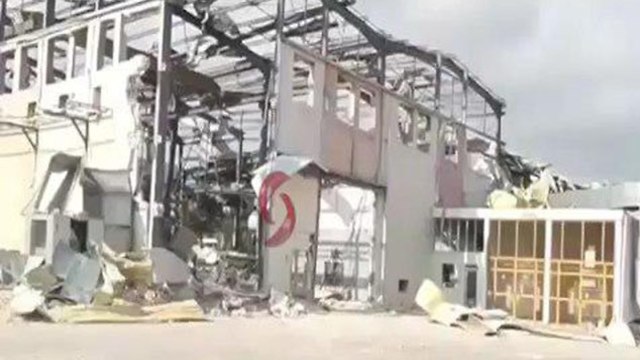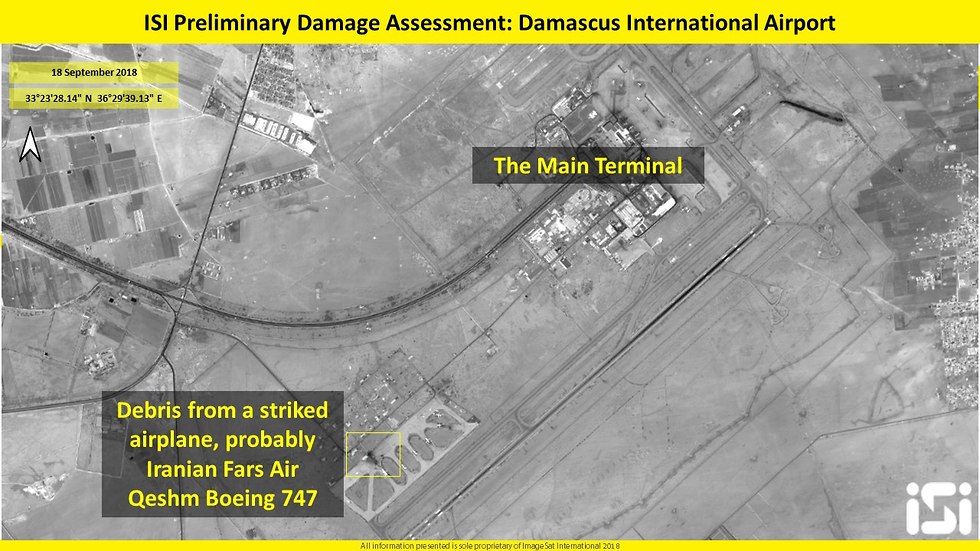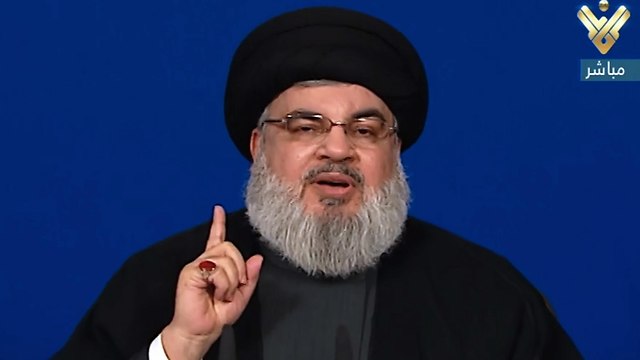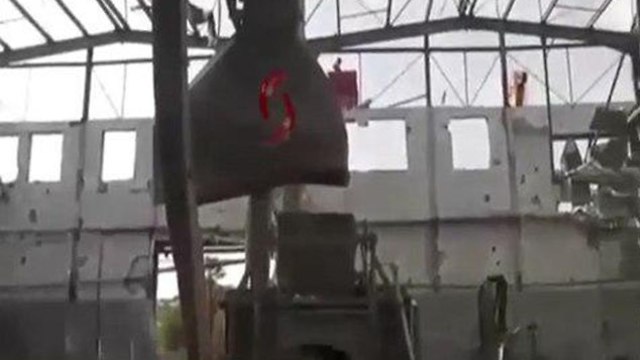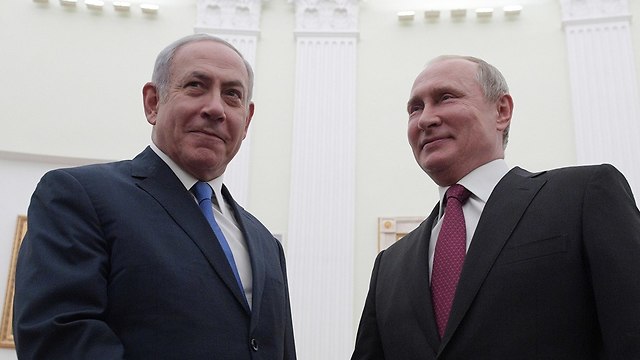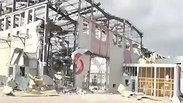
In a rare move, Syria released footage on Wednesday showing that the Israeli Air Force's (IAF) airstrike on a military facility in Latakia completely destroyed the site.
In contrast to the Syrian claim that the airstrike hit an aluminum factory, the IDF asserts a rocket factory from which high precision-guided arms were supposed to be transferred to Iranian and Hezbollah forces in Syria was destroyed.
The IDF Spokesperson's Unit added that when the plane was downed, the Israeli jets "were already en route to Israel."
Earlier on Wednesday, Hassan Nasrallah, the leader of the Hezbollah terror group, addressed the aforementioned Israeli attack, and the Israeli attack on Damascus International Airport.
"the Israeli attacks in Syria are intolerable and must be stopped," Nasrallah asserted.
Satellite images of recent airstrikes shows the military rocket factory was completely destroyed during Israel's attack on Latakia. A 155 by 35 meters' ammunition depot was completely wiped out.
In addition, satellite images of the attack on Damascus International Airport were published, showing the remnant of an aircraft, apparently the Boeing 747 of Fars Air Qeshm, an Iranian airline affiliated with the Islamic Revolutionary Guards.
In a televised speech Thursday, Nasrallah said Israel knows that the regional balance of power has changed, and that the recent Israeli strikes on Syria failed since "Hezbollah now has highly accurate ... missiles.”
"Many of Israel's attacks in Syria have no connection to Hezbollah's weapons transfers. Israel is trying to prevent the Syrian army from developing its ballistic capabilities, which will change the balance of power," Hezbollah leader added.
According to Nasrallah, should Israel impose a war on Lebanon, “it will face a fate and a reality it never expected on any day.”
On Tuesday, Prime Minister Benjamin Netanyahu spoke with Russian President Vladimir Putin on the phone, and said that Syrian forces were to blame for the downing of a Russian military jet.
The prime minister expressed regret on behalf of the state of Israel for the death of the Russian soldiers and said responsibility for downing the plane was placed on Syria,” the Prime Minister's Office said in a statement following their conversation.
Netanyahu “offered to send the Israeli Air Force commander to Moscow to deliver all the necessary details” for the investigation, the statement added.
It was also reported that Netanyahu emphasized the importance of defense coordination with Russia that had managed “to prevent many losses on both sides in the past three years” in Syria’s civil war, where various outside powers have backed opposing forces.
According to the prime minister, Israel was “determined to halt Iran’s military entrenchment in Syria and the attempts ... to transfer Iranian-backed weaponry to Hezbollah, to be used against Israel.”
Netanyahu and Putin hold frequent meetings and phone conversations to ensure their respective aircraft avoid accidentally clashing in the region’s airspace
Since intervening in Syria in 2015, Russia has usually turned a blind eye to Israeli attacks. Israeli officials say Israel has carried out about 200 such raids, often targeting Iran or Lebanon’s Hezbollah militia group, both close allies of the Syrian government, over the last two years.
Following their phone conversation, the Kremlin said Putin told the prime minister that the IAF is carrying out operations that damage the sovereignty of Syria.
The Kremlin also stated that the agreements reached between Russia and Israel regarding the prevention of such incidents "were not observed", adding that Putin asked Netanyahu to avoid such incidents in the future.
Before discussing the incident with Netanyahu, the Russian president called it "a chain of tragic chance events," adding that Russia needes to "seriously get to the bottom of what happened."
Putin added that Russia will secure all its "military facilities and personnel in Syria," in response.















